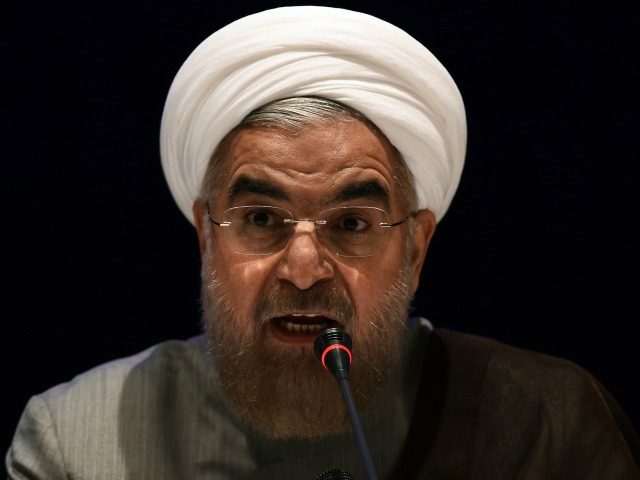TEHRAN (AFP) – Iran’s President Hassan Rouhani said Tuesday that Congress’s decision to renew US sanctions for 10 years would elicit a “harsh reaction” and proved the United States was still an enemy.
“America… is our enemy, we have no doubt about this. The Americans want to put as much pressure on us as they can,” Rouhani said in a speech to students at Tehran University.
The Iran Sanctions Act passed the US Senate 99-0 last week, after easily clearing the House of Representatives in November.
President Barack Obama is expected to sign the measure into a law, a White House official said, adding that the administration does not believe the extension violates last year’s nuclear deal between major powers and Iran.
Obama has suspended sanctions related to Iran’s nuclear programme since the agreement went into effect at the start of the year.
But Iran says that even if the nuclear sanctions remain suspended, just keeping them on the books amounts to a breach of the agreement.
“If this is implemented… it would be a blatant and clear breach of the JCPOA (nuclear agreement) and would face a very harsh reaction from us,” Rouhani said.
The actual language in the agreement could be interpreted in different ways.
It calls on the US to “cease the application of… all nuclear-related sanctions”. It does not specify whether Washington can keep them in reserve for possible use in the future.
At a press conference on Tuesday, conservative parliament speaker Ali Larijani said parts of the deal were “rushed”.
“Some of the sections of the JCPOA should have been written with more precision to stop differing interpretations,” Larijani said.
“I believe Iran should file a complaint in regard of the Americans’ breach of the JCPOA,” he added.
Rouhani and other top officials are due to meet on Wednesday to discuss the issue.
Rouhani, who is expected to run for a second term in May, has faced a barrage of criticism from conservatives who say his team made too many concessions in the nuclear deal for minimal economic gain.
In Tuesday’s speech, he emphasised that his team had not acted alone and that supreme leader Ayatollah Ali Khamenei was closely involved at every stage of the negotiations.
“We took no step on the JCPOA issue without consulting the honourable leader,” Rouhani said.
Although Iran has managed to significantly ramp up its oil exports since the deal, it has struggled to rejoin the international financial system because major Western banks remain reluctant to do business for fear of remaining non-nuclear US sanctions.
The result has been that Iran has been unable to attract the huge foreign investment which Rouhani has said is necessary to rekindle the country’s battered economy.

COMMENTS
Please let us know if you're having issues with commenting.